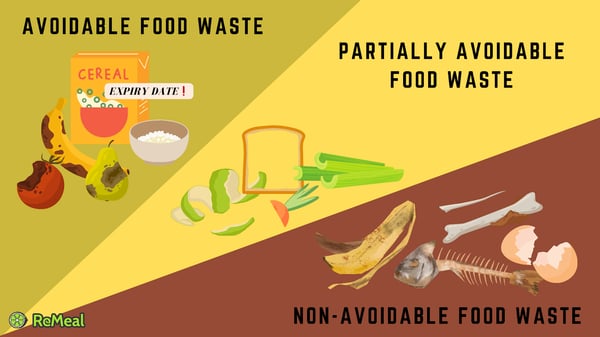Photo credit: Rauf Alvi
The fasting month of Ramadan is meant to be a period of reflection, spiritual realignment, and personal growth, emphasizing the importance of gratitude to God among Muslims. However, the prevalent practice of food waste during Ramadan contradicts the essence of sawm (fasting). Malaysians waste an average of 15,000 to 17,000 tonnes of food every day, a figure that escalates by 15% to 20% annually during festive periods like Ramadan.
Ramadan, being a holy month, should prompt us to reassess our lifestyles, leaving behind detrimental habits while embracing new, positive ones. Regrettably, for many, it has evolved into a month characterized by wastefulness.
Instead of appreciating the value of food and being reminded of those who don’t have enough to eat, we often prioritize indulging in lavish iftar feasts at hotel buffets or fancy restaurants. Consequently, this leads to significant amounts of food waste accumulating after iftar.
The fundamental principle in waste management is to avoid generating waste in the first place or minimize it to the greatest extent possible. Achieving this is not overly challenging; it merely requires mindfulness about our actions and their repercussions. You can start by implementing simple actions at home and perhaps making small changes to your habits.
Here are a few easy steps you can take to make your Ramadan more environmentally friendly:
1. Bring/use your own reusables
As much as possible, try to bring your own reusable items, such as a water bottle, food container, and cutlery, when you are planning to have an iftar outside. This practice helps reduce single-use plastic waste and promotes sustainability by encouraging the use of eco-friendly alternatives.
2. Plan your meals while keeping it simple
Plan your meals ahead by thinking about what you will eat and how much you'll consume. This helps you reduce food waste and make healthier choices. Be mindful of your portion sizes by being aware of how much food is enough to satisfy your hunger without overeating. Keep your meals simple and eat moderately to avoid consuming excessive amounts that could lead to health issues and unnecessary waste.
3. Avoid preparing excessive amounts of food
You are the best judge of how much you and your family can eat. If you find that you've prepared enough food for everyone, consider sharing the meal with neighbors or friends to prevent unnecessary surplus. This practice not only reduces food waste but also strengthens the sense of community among Muslims. Additionally, it aligns with the spirit of giving (sadaqah) encouraged during the holy month of Ramadan.
4. Store any leftovers properly or freeze them for next use
Store any leftovers from Iftar properly and, if necessary, freeze them for Sahoor. Depending on the type of food, you might even be able to enjoy them for Iftar the next day! This practice not only prevents food waste but also ensures that you can savor your meals for extended periods without compromising their freshness or quality.
Photo credit: Lou Lou B Photo
5. Use overripe fruit and veg to make healthy and simple desserts or soup menus
Take advantage of overripe fruits and vegetables by incorporating them into your meals for Iftar and Suhoor. You can use them to make delicious and nutritious low-sugar desserts, refreshing smoothies, and hearty soups. This not only helps reduce food waste but also adds variety and health benefits to your meals during Ramadan. Try to engage your kids in repurposing the not-so-pretty produce from your fridge; it's an enjoyable and educational way to teach them about food waste.
This Ramadan, let's try to not be extravagant when it comes to food and the use of resources. By being conscious of the waste we generate daily and striving to minimize it, we embody the teachings of the Quran, which urge us to enjoy Allah's provisions responsibly and avoid spreading harm or 'corruption' on earth through our food habits.
May Allah SWT accept all our good deeds and forgive all our sins in this blessed month of Ramadan :)

